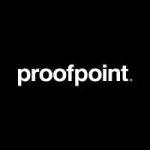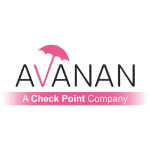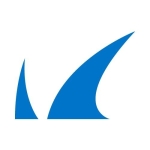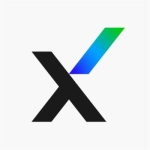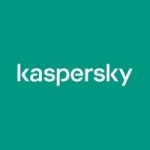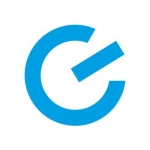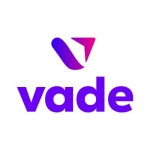What is our primary use case?
This solution is not for our organization. We are system integrators. We have some projects for our clients, and one of our clients was looking for CloudGuard because they use Check Point Firewall for their on-premise. There are a number of machines and critical servers that they have hosted in AWS; 15 to 20 servers and application servers are hosted in the AWS platform. For those, we have applied Check Point IaaS Firewall for their security and firewall protection.
We are using the stable version that was published in March.
How has it helped my organization?
I am confident with the block rate. We host our solution in AWS cloud. If someone tries to hit our applications, they could be a legitimate user or a hacker. So, we have found a number of blocked attempts from the external end.
What is most valuable?
In terms of technical features, this is the best solution that I have worked with so far. For example:
- URL Filtering
- Application control
- Threat Prevention
- Sandboxing
We have found threat prevention using sandboxing from Check Point, after buying the Threat Prevention license, helped with the malware prevention rate and reduced zero-day attacks.
For Threat Prevention, I was impressed with this feature and the solution's effectiveness. It has been very good.
Getting reports and finding threats in the console is easy.
What needs improvement?
The false positive rate is one of the problems that we had faced with Check Point's information. For example, we have a number of false positives in both CloudGuard SaaS and CloudGuard IaaS, which has been quite disappointing when we find them. However, the moment when we whitelist or blacklist false positive things, the solution gives us more efficient security than other solutions. When I teach Check Point IaaS, I feel like it is putting devices into learning mode and feeding more stuff to the solution, which gives me more efficient security.
We download the SmartConsole from AWS, installing it on our computers, then managing it from our end only on local machines. I need to download agents for every machine from the Check Point instance. To connect with the SmartConsole, then I need to give public access to Check Point's machine. At that moment, there is no configuration in my machine so I need to give some public access to our machine. Giving public access without configuring anything is the first defect or drawback. It takes a few times for every engineer to download the agent and configure the policy, and that takes five to 10 minutes. Within those five to 10 minutes, it is insecure.
The integration with the Check Point console needs improvement, e.g., accessing the SmartConsole is difficult.
For how long have I used the solution?
I have been working with Check Point for six to seven months.
What do I think about the scalability of the solution?
I haven't tested the scalability.
How are customer service and technical support?
The worst thing that I have faced with Check Point has been their support.
I have sat with all the following support teams:
- Cisco
- Fortinet
- SonicWall
- Sophos
- Check Point.
Other vendor support teams go after fixing the issue the moment that they join the remote session. The problem that I have faced with Check Point support is that they share the case number with me, then it takes at least two days for them to join a remote session with us, even though we have asked for this timeframe to change. Even though we have already explained the problems that we are facing or the business pain points in our network on the call or email, we have to repeat the problem statements again in the console. It can take four or five days to resolve the issue from the moment they understand the problem. This includes the time to teach their R&D or internal team whatever the issue is. I have faced timeframes as long as seven to 10 days for fixing some issues.
Since this is a cloud-based solution for IaaS and SaaS, I need a different support team for a number of things. So, if they increased or developed their support team, then it would be better for their customers.
How was the initial setup?
Compared to other solutions, like Fortinet, this solution's initial setup is complex. Policy configuration and integrations make Check Point's setup difficult. The setup for on-premise and cloud are the same.
What about the implementation team?
Whenever we need to download the agent from Check Point's console and integrate the SmartConsole with the Check Point solution, the configuration is time consuming and a difficult task for an engineer. Getting the console integrated with the firewall can be difficult, affecting engineers during implementation.
What's my experience with pricing, setup cost, and licensing?
When it comes to Threat Prevention pricing and licensing, it has felt a little costly. For some clients, who are looking at security as their primary concern, then it's better for them.
I'm in this business as a system integrator, so I need to suggest Check Point to some customers who are comparing products. I sell Check Point, Fortinet, and Palo Alto solutions. In terms of licensing, this solution is quite competitive but very costly. For someone looking at security as a primary concern, they should only invest in Check Point. For a customer who is looking at security combined with pricing, Check Point might not be the core solution for them. In today's market, customers are looking for effective security with efficient pricing, and Check Point is not suitable for these types of customers.
I would like them to improve the pricing.
Which other solutions did I evaluate?
With respect to Check Point's security features, my clients and I feel every feature given by Check Point has been very helpful for us. We have tried FortiGate, Sophos, and Cisco in some places. Even though Check Point wasn't a market leader, like Cisco and FortiGate, they have the most efficient security. Therefore, we feel it is worth the money for their security features.
The cloud security provided by CloudGuard IaaS is simple compared with the security provided by public cloud providers. If I go for Check Point, then I'm getting the complete features of what a firewall does. When I go for AWS, then by default, I don't get anything other than the ACLs.
What other advice do I have?
The security features have been good. The pricing and licensing strategies have been average, but Check Point's support has been the worst.
I would rate the solution as a seven out of 10.
Disclosure: PeerSpot contacted the reviewer to collect the review and to validate authenticity. The reviewer was referred by the vendor, but the review is not subject to editing or approval by the vendor. The reviewer's company has a business relationship with this vendor other than being a customer: System Integrator



